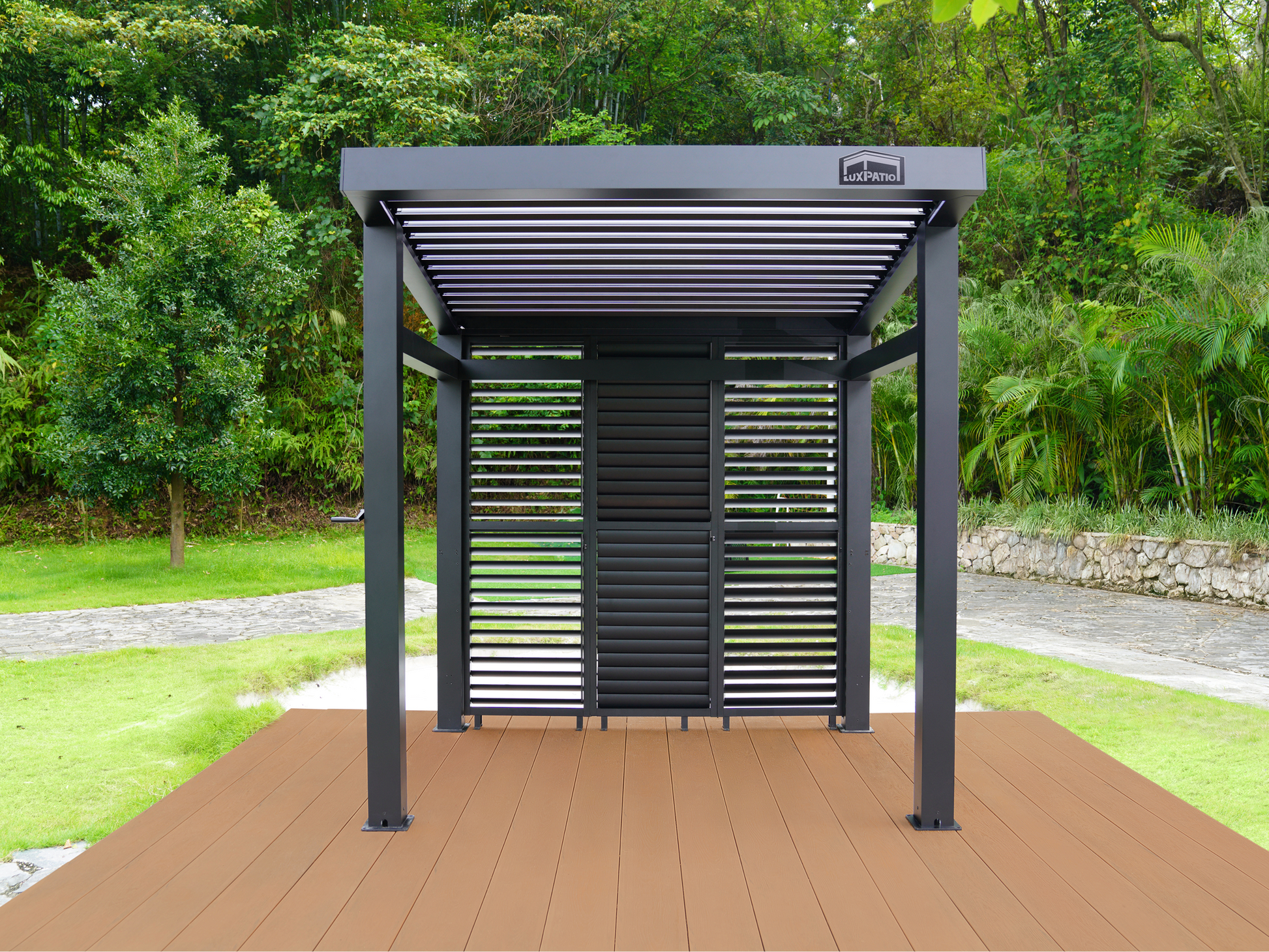Unlock Your Backyard Dreams: Discover the Secrets to Stunning Pergola Options!
Pergolas have surged in popularity as homeowners seek to enhance their outdoor spaces. These elegant structures not only provide shade and shelter but also create a visually appealing focal point in any yard. Imagine sipping your morning coffee under a beautifully designed pergola, surrounded by your favorite plants, or hosting a dinner party beneath twinkling lights. The addition of a pergola can significantly extend your living space, making your backyard the go-to destination for relaxation and entertainment. This article aims to explore various options for purchasing or obtaining quotes on pergolas, helping you take the first step toward transforming your outdoor area into a personal oasis.

Understanding Pergolas: Types and Materials
When considering a pergola, it's essential to understand the different types and materials available. Pergolas can be categorized into freestanding, attached, and customized designs. Freestanding pergolas stand alone and can be placed anywhere in your yard, offering maximum flexibility in design and location. Attached pergolas are connected to your home, providing a seamless transition between indoor and outdoor spaces. Customized pergolas can be tailored to fit specific dimensions and styles, allowing you to create a unique structure that complements your home.
Common materials used in pergola construction include wood, metal, and vinyl. Wooden pergolas are a popular choice due to their natural beauty and versatility, but they require regular maintenance to prevent rot and damage from the elements. Metal pergolas, typically made from aluminum or steel, offer durability and a modern aesthetic but may lack the warmth of wood. Vinyl pergolas are low-maintenance and resistant to fading and warping, but they may not provide the same level of strength as wood or metal. Understanding the pros and cons of each type and material will equip you with the knowledge needed to make an informed decision that aligns with your vision and needs.
Factors to Consider When Choosing a Pergola
Choosing the right pergola involves several key factors, including size, design, budget, and maintenance requirements. Start by assessing the available space in your yard. A larger area may accommodate a big, freestanding structure, while a smaller patio might benefit from a compact attached pergola. Next, consider the design: do you prefer a modern look, or does a rustic style speak to you? Your choice should harmonize with your home’s architecture and landscaping.
Budget is another crucial consideration. Pergolas can range from affordable DIY kits to high-end custom builds, so it's important to establish a budget that reflects your financial situation. Additionally, think about maintenance needs—wooden pergolas require more upkeep than their vinyl or metal counterparts. By carefully weighing these factors, you can select a pergola that not only enhances your outdoor space but also fits seamlessly into your lifestyle.
Where to Purchase Pergolas: Options and Resources
When it comes to purchasing a pergola, there are several avenues to explore. Home improvement stores often carry a selection of pre-made pergola kits, which can be a great option for those looking for an affordable and straightforward solution. Specialty outdoor retailers offer a wider variety of styles and materials, along with the expertise to help you choose the perfect fit for your space.
Online marketplaces have also become a popular choice, allowing for easy comparison of prices and styles from the comfort of your home. When purchasing online, be sure to read reviews and check the seller’s reputation to ensure you’re getting a quality product. Regardless of where you decide to buy, look for options that offer warranties or guarantees, as these can provide peace of mind and protect your investment.
Getting Quotes and Custom Designs
If you're considering a custom pergola, obtaining quotes from contractors is a vital step in the process. Start by researching local construction companies or landscape architects who have experience with pergola installation. When reaching out for quotes, be prepared to provide specific information, such as the desired size, style, and materials. This will help contractors give you accurate estimates.
Don't hesitate to ask for design consultations, as these meetings can offer invaluable insights into what will work best for your space. Additionally, request reviews or references from previous clients to gauge the contractor’s reliability and quality of work. By comparing quotes and thoroughly vetting potential builders, you can ensure that your custom pergola will be a stunning and durable addition to your backyard.
Enhancing Your Outdoor Living with a Pergola
Adding a pergola to your backyard can greatly enhance your outdoor living experience, providing both aesthetic beauty and functional space for relaxation and entertainment. By understanding the different types and materials available, considering key factors during your selection process, and exploring various purchasing options, you can find the perfect pergola that suits your needs and style. Don’t hesitate to reach out for quotes and consultations to start the journey toward realizing your backyard dreams. With the right pergola, your outdoor space can become a true extension of your home.








